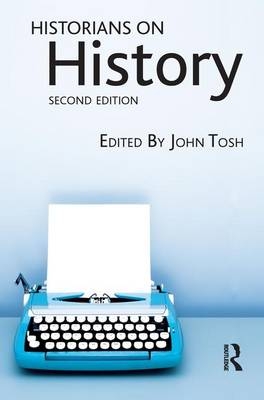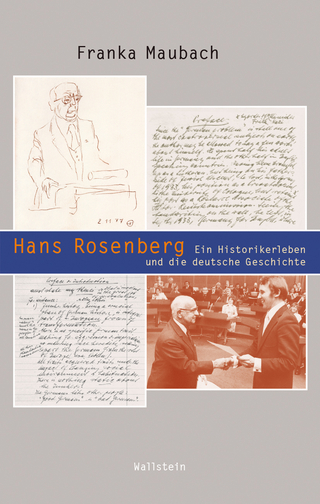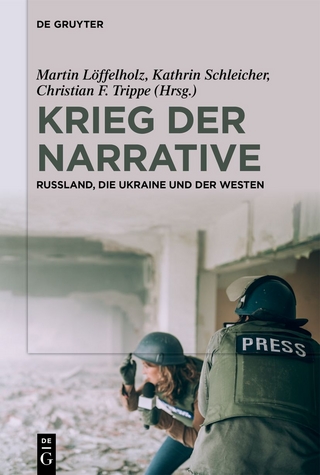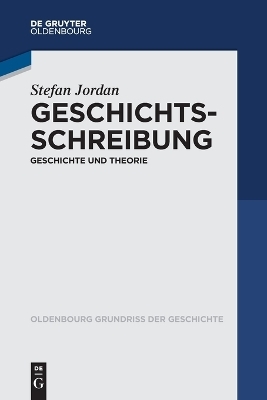
Historians on History
Routledge (Verlag)
978-1-138-12829-3 (ISBN)
- Titel ist leider vergriffen;
keine Neuauflage - Artikel merken
They illuminate the different governing assumptions - political, social, personal - that have sustained these leading practitioners in their studies, and show how different influences and methodologies have impacted on them.
In so doing, the book not only gives an insight into the great variety of aspirations and convictions that animate History as a discipline, but also brings into focus the key historiographic trends of the English-speaking world since World War II. Key themes which are highlighted include:
The nation
Marxism
People's history
Structural history
Gender
Race
Quantitative history
Ranging widely from the earlier traditions and schools to the wake of postmodernism, authors represented include Braudel, Carr, Elton, Himmelfarb, Hobsbawm, Scott and Zeldin.
This Reader provides the core reading for all History and Theory courses.
John Tosh is Professor of History at Roehampton University.
Introduction. Part One: History for its own Sake. Fidelity to the sources. 1. V.H. Galbraith. 2. G.R. Elton. Empathy and imagination. 3. C.V. Wedgwood. 4. Richard Cobb. Part Two: Political Histories. History as progress. 5. J.H. Plumb. 6. E.H. Carr. The nation. 7. Herbert Butterfield. 8. Daniel Boorstin. 9. A. Adu Boahen. Marxism. 10. Christopher Hill. 11. E.J. Hobsbawm. 12. Eugene Genoves. Part Three: The New Radicalism. History from below. 13. Raphael Samuel. 14. Vincent Harding. 15. Alf Lûdtke. Gender. 16. Carroll Smith-Rosenberg. 17. Joan Scott. 18. Gisela Bok. Postcolonialism. 19. Ranajit Guha. 20. Dipesh Chakrabarty. 21. Catherine Hall. Part Four: Learning from Historical Perspective. Persistence and change. 22. Marc Bloch. 23. Peter Laslett. Beyond stereotypes. 24. Michael Howard. 25. Howard Zinn. Qualified predictions. 26. H.R. Trevor-Roper. 27. Alan Bullock. Part Five: History as Social Science. New questions, new concepts. 28. Richard Hofstadter. 29. Philip Abrams. The authority of numbers. 30. Emmanuel Le Roy Ladurie. 31. Robert William Fogel. Reactions. 32. Fernand Braudel. 33. Lawrence Stone. 34. Theodore Zeldin. Part Six: The Cultural Turn. The impact of Postmodernism. 35. Patrick Joyce. 36. Joan Scott. 37. Joyce Appleby, Lynn Hunt and Margaret Jacob. The new Cultural History. 38. Mark Poster. 39. Robert Darnton. Memory and culture. 40. Pierre Nora. 41. Katherine Hodgkin and Susannah Radstone. Part Seven: Beyond Academia. 42. H.R. Trevor-Roper. 43. Gerda Lerner. Further Reading. Index.
| Erscheinungsdatum | 11.06.2016 |
|---|---|
| Verlagsort | London |
| Sprache | englisch |
| Maße | 156 x 234 mm |
| Gewicht | 680 g |
| Themenwelt | Geisteswissenschaften ► Geschichte ► Geschichtstheorie / Historik |
| ISBN-10 | 1-138-12829-5 / 1138128295 |
| ISBN-13 | 978-1-138-12829-3 / 9781138128293 |
| Zustand | Neuware |
| Informationen gemäß Produktsicherheitsverordnung (GPSR) | |
| Haben Sie eine Frage zum Produkt? |
aus dem Bereich


